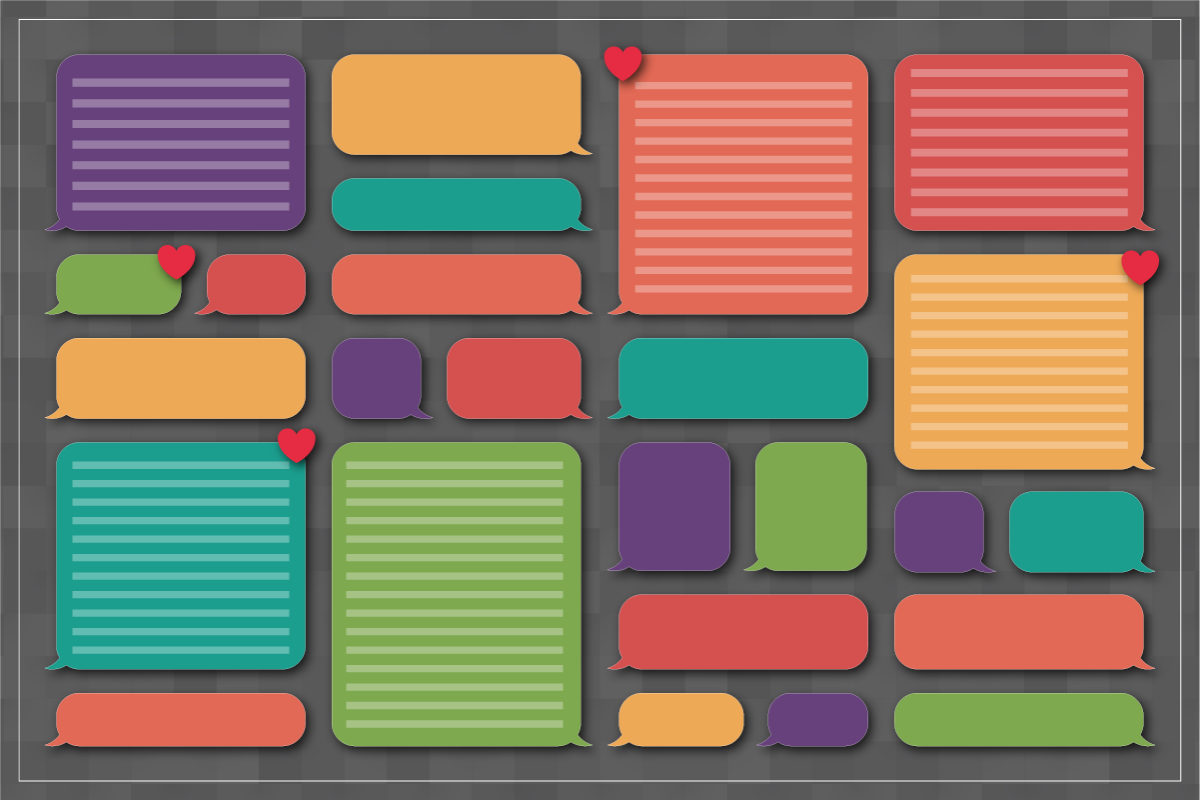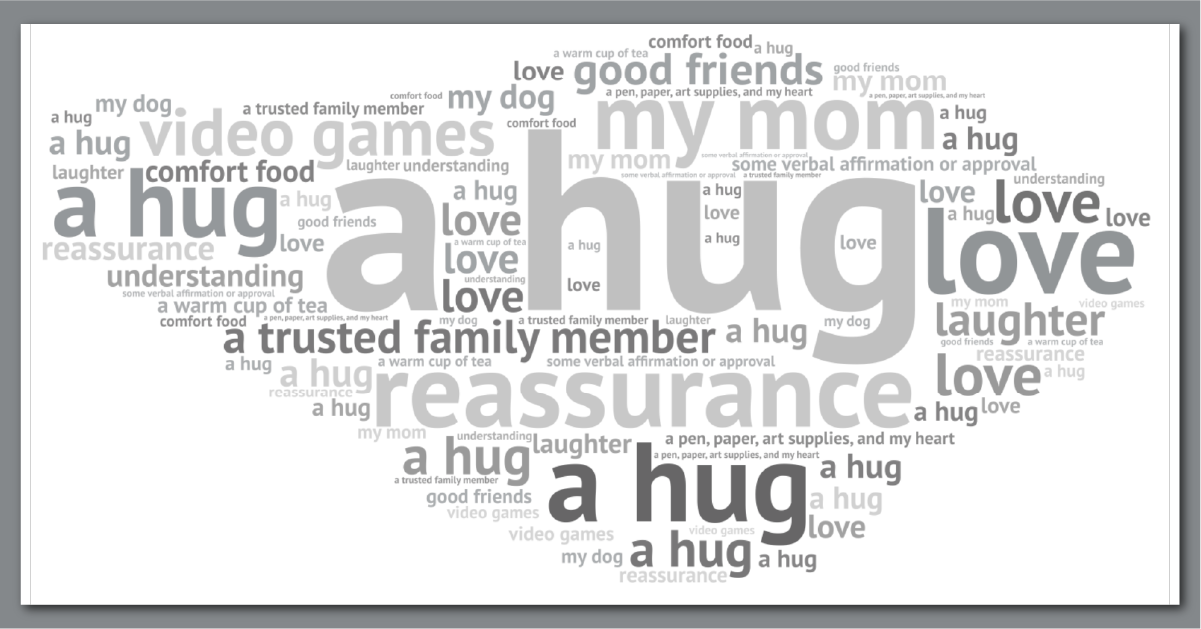
We Asked Gamers About Their Hard Days at Play NYC. Here’s What We Learned.
Are we listening, and are we responding constructively? What teens shared with us at Play NYC affirms why these questions are our guideposts when co-designing with them.
Our ability to feel is what makes us human. It is fundamental to who we are, underlying how we connect and the realities we co-create.
It supports our sense of self, helping us unpack our thoughts and reactions, build awareness of what's happening around us, and deepen our knowledge of ourselves in relation to the world we live in.
Games make us feel. They delight us, challenge us, calm us, frustrate us, connect us, and excite us. They're also uniquely captivating, not just in what they portray aesthetically and demand mechanically, but because of the state of embrace they insist on those who play them. Encountering a never seen start screen or the unopened box of a new tabletop game, we are ready, willing, and receptive to knowledge. Play's ability to get us to put our guard down, be curious, and engage with new possibilities helps create the conditions for transformation and meaningful learning.
Earlier this month, the iThrive team showcased at Playcrafting's Play NYC—an event that magnified the power of play and brought hundreds of game industry professionals, indie game developers, and game designers together to exhibit their games to players and peers. There, we shared Cadence, a single-player, text-based strategy game we created with the One Love Foundation and Playmatics, LLC. Cadence invites players to explore three of their friends' stories and converse with them via real-time dialogue choices that affect their friendships and outcomes. Building on One Love's mission to empower young people with the life-saving prevention education, tools, and resources they need to see the signs of healthy and unhealthy relationships, Cadence supports young people in learning to love better, in being with partners who practice healthy love, and communicating with loved ones who are in unhealthy relationships. While New Yorkers of all ages played a demo of the game and shared feedback, teens, many of whom went on to become members of our Teen Hub, were particularly moved by the game's storyline, mechanics, and captivating 2D art.
Beyond the valuable feedback we received on Cadence, slated for release later this year, the experience provided another opportunity for our team to create a forum for listening to and learning from young people. At PLAY NYC, we marked a large glass bowl with the question, "What makes you feel better on your hard days?", and teens and young adults anonymously shared the following:

ARE WE LISTENING?
Tucked in each of these answers is a guidepost for innovation—caring, joy, connection, self-expression. Creating safe spaces where teens are heard and listened to with the intent to understand them has guided our game development and experience design work over the last five years, and empathic listening and design is what has made the impactful play experiences we've designed with and for teens possible. The needs echoed and desires illuminated in the responses we elicit from young people in the safe spaces our social and emotional learning experts create (in this case, a glass bowl, and lime green Post-it notes) are folded into the game concepts we envision with clients and collaborators
Empathic listening has long been a driver of breakthrough thinking. Being in community with teens and young adults has helped us think expansively and collaboratively. We've found that empathy, when practiced consistently, is essential to transformative change and central to the knowledge-building and knowledge-sharing that informs the design of meaningful solutions.
iThrive's co-design approach, which gives teens the tools to step into their genius and explore their needs, is care in action. Our approach creatively empowers young people with new ways to tap into their genius, share their experiences and wisdom with others, advocate for the support they deserve, and create with us the experiences they want to see.
With the Centers for Disease Control and Prevention (CDC) reporting that nearly half of U.S.-based high school students are experiencing persistent feelings of sadness and hopelessness, it is on all of us in the game design ecosystem to create the spaces, in person and digital, to listen and effectively gauge the thriving of end users. With over 90 percent of teens and young adults self-identifying as gamers, every game designer, developer, and writer has the tools to meet them where they are and equip them with valuable knowledge, tools, and support. It is on all of us always to ask, "Are we listening?"
ARE WE SUPPORTING?
The learning that comes from listening allows all designers and developers to respond constructively, and offer support in meaningful ways. Games are already socially and emotionally valuable, and when tailored to teens and young adults' strengths, developmental needs, and insights, they become vessels for further social and emotional support.
Our adolescent development experts work with and for young people, and in partnership with libraries, museums, government agencies, and organizations that care about them, fully recruit the feelings that play evokes to support teens' social and emotional health. The science of adolescence and evidence-based practices that support positive teen growth are folded into the games, game-based tools, and interactive learning experiences we create. Questions like "How does this enliven teens to practice healthy skills like exploring their identity, engaging with their community, and taking purposeful action in the world?"; "How does this invite teens to regularly notice emotions, helping them notice the thoughts, sensations, and behaviors that accompany their feelings?"; or "How does this normalize help-seeking?" steer the game development process we lead, ending in a play experience that nourishes young people in ways supportive of their wellness, learning, and thriving.
At Play NYC, we shared questions like these on a printout version of our 10 Things to Know When Designing for Teens resource, given to other game designers and developers eager to go beyond listening and to start responding and supporting young people's social and emotional needs. We're happy to now make that resource accessible to everyone and downloadable via the Resource Hub on our website.
Asking and listening helps us understand people and ideas. That insight and evidence-based practices nudge us toward wellness-supporting games and more impactful play experiences for young people. For the design team or studio looking to elevate the impact of the games they create for young audiences, connect with us today for a consulting report benchmarking your game in development against the science and sharing recommendations on ways to fold in social and emotional skill-building—a practice proven to protect and promote teen mental health.
Together, we can and should advance wellness wherever young people are. Join in.


